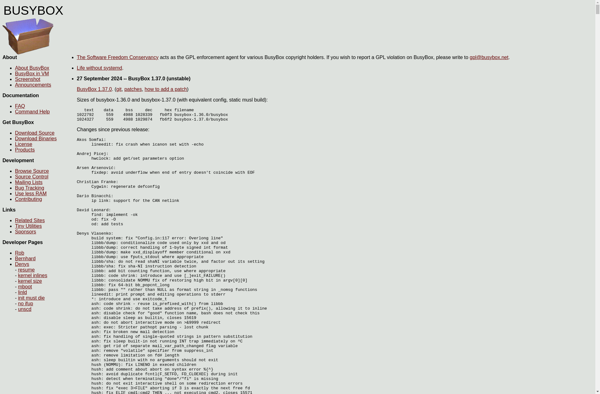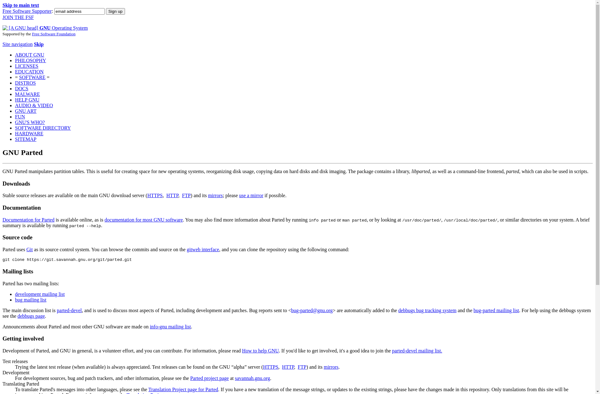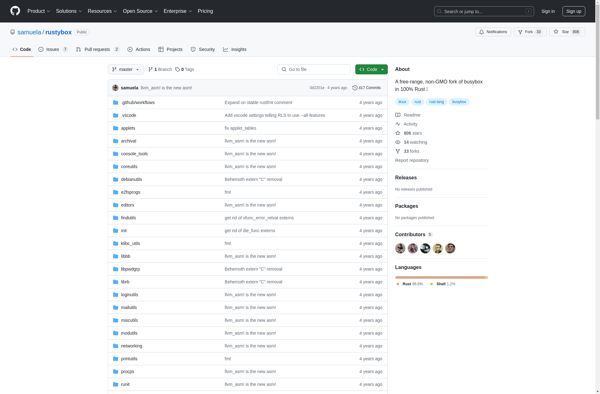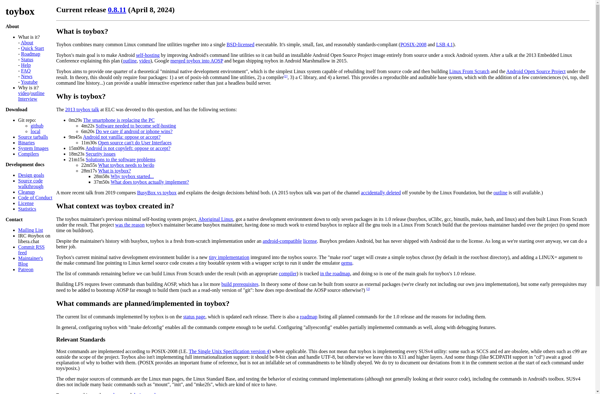GNU Core Utilities

GNU Core Utilities: Basic Command-Line Programs for Unix-Like OS
The GNU Core Utilities are a set of basic command-line programs for Unix-like operating systems. They provide functionality for tasks like file manipulation, text processing, and system administration.
What is GNU Core Utilities?
The GNU Core Utilities are a collection of basic command-line programs that provide functionality for common tasks in Unix-like operating systems. They are developed by the Free Software Foundation as a core part of the GNU operating system.
The utilities cover functionality like file manipulation (copy, move, delete, rename), text processing (search, sort, transform), system administration (user info, process control), and more. Some well-known examples include ls, cat, mkdir, rm, cp, echo, printf, grep, and many others.
The GNU Core Utilities aim to conform to POSIX standards to maintain compatibility with other Unix tools. They are licensed under the GNU GPL and emphasis features like stability, speed, and reduced memory usage compared to some other implementations. The utilities are installed by default on nearly all Linux distributions and macOS.
Some key benefits of the GNU Core Utilities include:
- They provide a standard set of tools guaranteed to be available on most Linux/Unix systems.
- They are open source, allowing users to inspect and modify the code as needed.
- They are lightweight and fast for most common tasks.
- They are designed to be stable and reliable in mission-critical environments.
- They adhere to standards to promote interoperability between systems.
The GNU Core Utilities form an essential base layer of the command-line interface for Linux/Unix systems. Their maturity, ubiquity, and design make them valuable tools for programmers, sysadmins, and power users on POSIX-compliant systems.
GNU Core Utilities Features
Features
- File manipulation utilities like cp, mv, rm, mkdir
- Text processing utilities like cat, grep, sed, sort
- System administration utilities like chmod, chown, kill, hostname
- Data compression/archiving utilities like gzip, tar
- Network utilities like ping, hostname
Pricing
- Open Source
Pros
Cons
Official Links
Reviews & Ratings
Login to ReviewThe Best GNU Core Utilities Alternatives
Top Os & Utilities and System Utilities and other similar apps like GNU Core Utilities
Here are some alternatives to GNU Core Utilities:
Suggest an alternative ❐GParted

GNOME Disks

BusyBox

GNU Parted

RustyBox

Toybox (Linux command line utilities)
